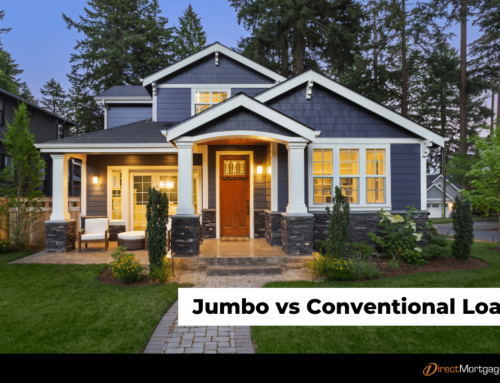What is an Appraisal?
An appraisal evaluates the value of a property to determine its market value. Lenders typically require an appraisal when borrowers apply for a mortgage. The value determined by the appraisal is then used to determine the maximum loan amount the mortgage lender is willing to offer. Continue reading to find out some surprising factors that can affect a home appraisal.
Subscribe to our blog to receive notifications of posts that interest you!
How do appraisals work?
When you apply for a home loan, the lender will order an appraisal to assess the value of the property. The appraiser will collect information from various sources such as county records, Multiple Listing Services (MLS), and other relevant sources. Moreover, they could use different methods like the Sales Comparison Approach, the Cost Approach, and/or the Income Approach to determine the property’s value.
- Sales Comparison Approach: Involves comparing recent sales of properties that are comparable to the property being appraised. Factors like size, style, age, and amenities are considered to determine the property’s value.
- Cost Approach: A method to determine how much it would cost to build the same building again today, considering how old the home is, and how much the building may have depreciated in value. This also includes the value of the land the building sits on.
- Income Approach: Typically used for properties with multiple living units. The Income Approach calculation considers income as a factor in areas where buyers and sellers make decisions based on rental income.
Once the appraiser has evaluated and analyzed the relevant data, they will combine the values obtained and come to a final opinion on the value. Finally, the appraiser will present a report to the lender with their findings and conclusions.
The Importance of the Home Appraisal Value
When you’re applying for a home loan, the value of your home is determined by an appraisal. This helps to ensure that both the lender and the home buyer are paying a fair price for the property. It also serves as a safeguard for the lender, as it reduces the risk of a total loss if the homeowner defaults on the loan.
Low Home Appraisal Value
A low home appraisal is when the appraiser values the home below the agreed purchase price. This could cause challenges if the appraised value is less than the contract price, as it may limit lender financing and lead to delays in closing. In such a scenario, the buyer may need to pay the difference out of pocket or negotiate a lower price with the seller. In a refinance, a low appraisal may indicate that there isn’t enough equity available for borrowing.
High Home Appraisal Value
A high home appraisal value is when the appraised value exceeds the agreed-upon purchase price. This can benefit a buyer by allowing them to secure financing for the home at the agreed-upon price, increase homeowner equity, and potentially lead to advantages like higher cash-out refinance proceeds or removal of private mortgage insurance (PMI).
Surprising Factors That Can Affect A Home Appraisal
There are several surprising factors that can impact the appraisal of a home. Some of these factors include the location, size, condition, and age of the property, any recent renovations made, the home’s curb appeal, the amount of storage space available in closets, and the value of comparable properties.
Location of Home
The appraiser considers various factors while evaluating a home, including the location of the property. Factors like the neighborhood, crime rates, amenities availability, and nearby schools are considered. Even the proximity of your property to neighboring homes is also considered.
Home Size
The size of the home is another crucial factor that the appraiser considers while determining the value of the property. This includes the square footage, number of bedrooms and bathrooms, and livable space. However, it’s not just the size of the home that matters, but also the layout and design.
Condition & Age
The age, condition, and the local market of the property are also included in the appraisal. Generally, newer and well-maintained homes tend to receive a higher appraisal value. However, this is not always the case, especially in areas where houses are typically older and historic. In such areas, an older home that has been well-maintained could have a higher appraisal value than a newer one.
Home Renovations
If you’re planning to renovate your home, it’s important to consider how these changes may affect its value. Upgraded kitchens and bathrooms could add value, but it’s important to keep in mind that not every buyer may appreciate your style. Too many personalized renovations or incomplete projects could potentially decrease the value of your home.
Curb Appeal
Curb appeal means how attractive a property looks from the street. It includes things like landscaping, paint, siding, and the front porch. These all affect the first impression people have when they see the property. If a home looks good from the street, it’s more likely to have a higher value.
Closets & Storage
The more closets and storage space you have the better. A large walk-in closet, a spacious garage, and a finished basement are all factors that could positively impact a home appraisal.
Comparable Properties
When appraisers determine the value of a home, they consider comparable properties that share similar features. They use the sales comparison method to analyze recently sold homes in the same area. Ideally, appraisers look for similar properties within the same neighborhood to ensure a fair and accurate appraisal value.
What hurts a home appraisal?
Some factors can increase your home’s appraisal value, while others can lower it. Below are some factors that can negatively affect your home appraisal:
Unique or Rural Home
If you have a unique or rural home, it may be harder to appraise because there are not many comparable houses in your area. Appraisers might look at homes in other neighborhoods to try to determine a value for your home, or they might give a range instead of an exact value.
Outdated Appliances, Systems & Interiors
Having outdated appliances, plumbing, electrical, and HVAC systems could decrease the value of your property. Dated features in your home’s interior could imply that the property has not been well-maintained, which could raise concerns about any underlying issues.
Structural & Construction Materials
The quality of the structure and materials used in the construction of your home could significantly impact its value. Durable materials could enhance the home’s resistance to natural disasters such as hurricanes and earthquakes, which could ultimately affect its appraisal value.
Pest Infestation or Damage
If there is evidence of pest infestation or damage, like mouse droppings or damaged wood from termites, this could impact your home’s appraisal. If you suspect a pest problem, it’s best to hire a professional to evaluate the situation. Then, you should take care of the problem and obtain certification to show that the issue has been addressed.
What happens if the appraisal is lower than the offer?
When the appraisal comes in lower than the offer, it could create problems for both the buyer and the seller. If the appraisal value is lower, the mortgage lender of the buyer will not lend more than the appraised value, which could create a financial shortfall for the buyer. In such a scenario, the buyer would need to come up with more cash or renegotiate the price with the seller to match the appraisal value.
FAQ’s On Things That Can Hurt A House Appraisal
What does an appraiser do?
An appraiser’s job is to conduct a thorough analysis of a property to determine its market value. They visit the property, document its features, and compare them to similar properties. After completing the evaluation, they send their findings to the lender.
What do home appraisers look for?
When evaluating your home, appraisers consider several factors such as the general condition of the house, its location, age, size, condition, and any home improvements made to it. These factors can have a significant impact on the overall value of the property.
Does cleanliness affect a home appraisal?
While appraisers aim to be unbiased, a messy home might signal neglect and hide potential issues. Though cleanliness may not directly affect the home’s value, a messy or cluttered home could prompt some additional questions. It’s recommended to tidy up to avoid potential concerns during the appraisal.
What matters most in a home appraisal?
When determining the value of a home, there are several factors that an appraiser considers. Nonetheless, arguably the most important factor is comparing your home to other similar homes. The appraiser will carefully analyze recently sold homes in the same area that have similar features, such as the number of bedrooms and bathrooms, updates, and square footage. These homes that are like yours serve as a benchmark to determine the value of your home during the appraisal process.
Are home appraisals public record?
Home appraisals are not considered public records. Specifically, the Confidentiality Section of USPAP requires appraisers to keep client information confidential, and only share it with authorized parties such as the client, state enforcement agencies, or authorized review committees.






Leave A Comment
You must be logged in to post a comment.